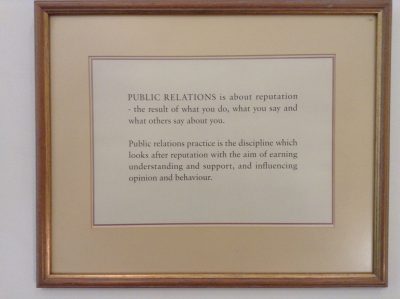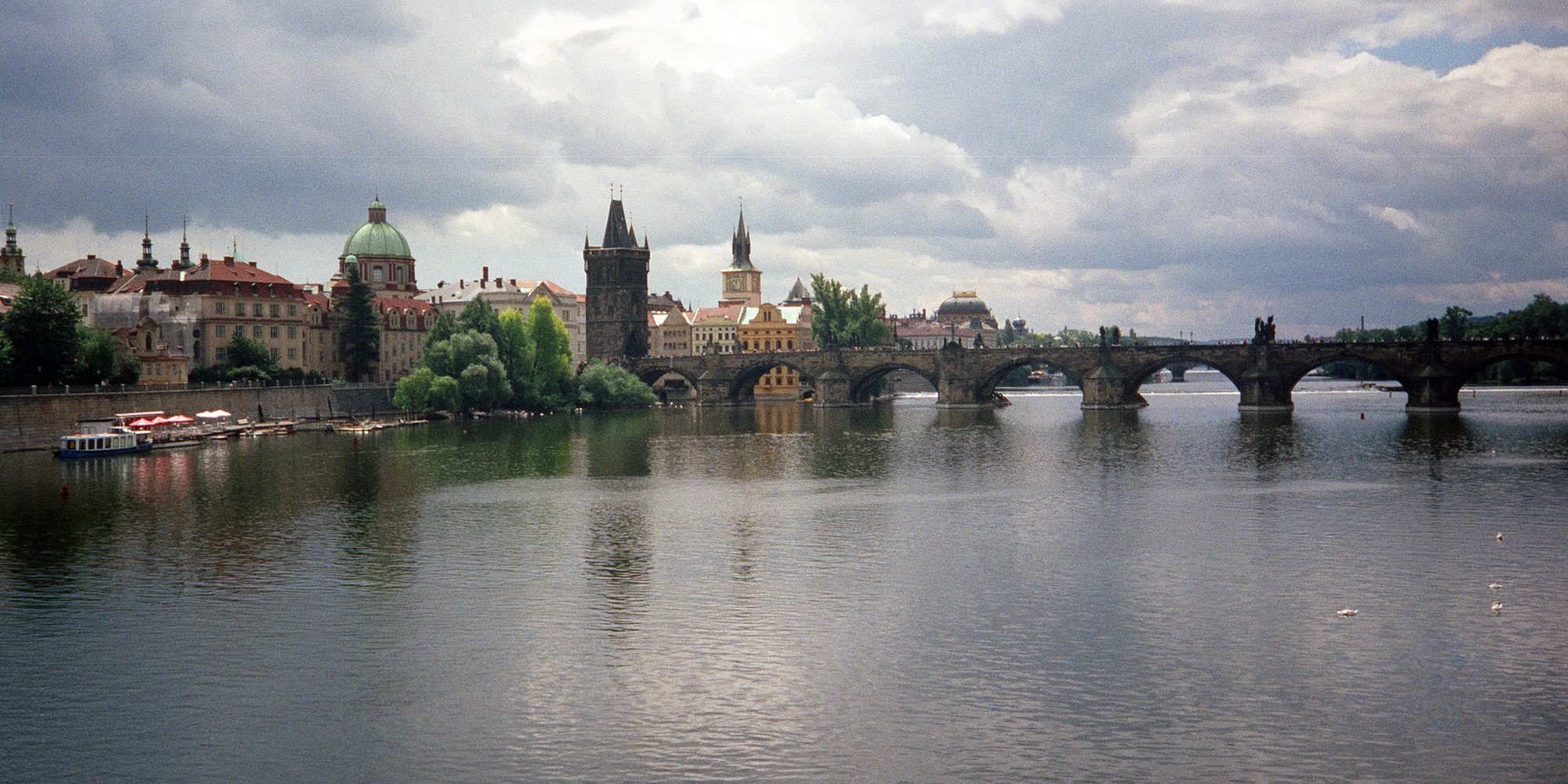What is public relations? It depends on who you ask, I suppose.
For many years, when the Chartered Institute of Public Relations had an office, the print in this image was the first one you came across as you walked up the stairs. The first line says “Public relations is about reputation.”

I can go for that. If you do press office, media relations or public affairs you’re broadly trying to protect your or your employer’s reputation (in some cases, trashing the opposition’s – but we don’t talk to those people).
Death of a Degree
A while back (I’ve been busy – sorry), Richard Bailey noted that there are now only two ‘straight’ public relations degrees in the UK.
I’ve always been in the camp that thinks people coming straight out of PR degrees into reputation-based PR roles aren’t much use as they can’t always see the big picture. I have experience of working with someone who always had the blinkers on – good at their job, terrible at understanding their role within the organisation.
When I used to be asked to meet with students I would always tell them to lift their heads out of their books and try to understand the world around them more. Otherwise they’d be as useful as those people who go straight into teaching degrees and end up trying to teach people five years younger than they are, with about much understanding of life as their charges.
The problem is that ‘public relations’ is a very big field; the examples above being just three of the disciplines within in.
‘Marketing’ on the other hand… well, that’s just marketing, innit? Everyone knows what that is, because every marketing discipline is called “something-marketing”.
It’s as if people are afraid to use the phrase “public relations”. They either use the specific discipline or the more generic “communications”.
That always bugs me as well. My last job title was “Communications and Marketing Officer.” What is “marketing” if not a form of “communications”? Conversely, and likewise, my current title is “Press and Communications Officer”.
(Side note: I’m not doing that much ‘press’ at the moment. The previous job title would have been Communications Officer, with an expectation that the role would cover press/media/public relations – but not marketing.)
Back to the future?
As I might have mentioned previously, my first (attempted) degree covered lots of communications – Public Media, we called it – disciplines and allowed you to specialise in years 2 and 3 on marketing, PR, advertising, visual arts (this was before desktop publishing really took off, and 20 years before digital was a thing), corporate communications and even industrial relations after a fashion.
This approach is similar to that which Richard advocates.
I’d think about taking that a step further though. A two- or three-year multi-disciplinary course with a one-year add-on to specialise and come out with a professional qualification from the CIPR or CIM or PRCA or whoever else wants to offer one. Practical experience included of course, we don’t want to turn out lots of theorists, God help us!
And then retain the specialist MA degrees for those that want to study further.
Or – just a thought – that additional year after graduating could lead to a post-graduate diploma, with a further year leading to a specialist MA. That’s how TASC used to offer the Public Communications course in the 1990s and 2000s before it folded (RIP).
The twist
Because, like it or not, there is a great deal of overlap between public relations, marketing, advertising, internal communications, stakeholder engagement, consultations, etc.
Some recruiters, with their blinkers-on approach, don’t always see this. Having been turned down for a “Communications and Marketing” yet again by the same organisation because “Gary doesn’t do marketing” I finally snapped. I wrote to the membership team at the CIM, told them my work history, and details of some of the projects I’d worked on at work and in the voluntary sector.
They made me a Member. Not as Associate or Affiliate, but a full Member.
I have no marketing qualification, but what I have done counts as ‘marketing’ as well as ‘public relations’.
I’m still trying to get my head around that a bit, but if a chartered PR practitioner with 20 years’ experience can now call himself a marketer, perhaps the ‘straight’ PR degree really doesn’t have a future?
And if it doesn’t: how are we going to approach the new normal so that public relations is still a distinct option?
An exercise possibly left for the reader.
